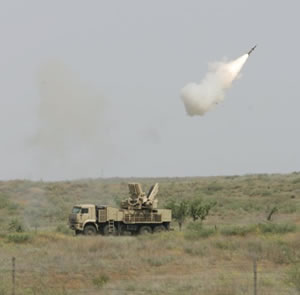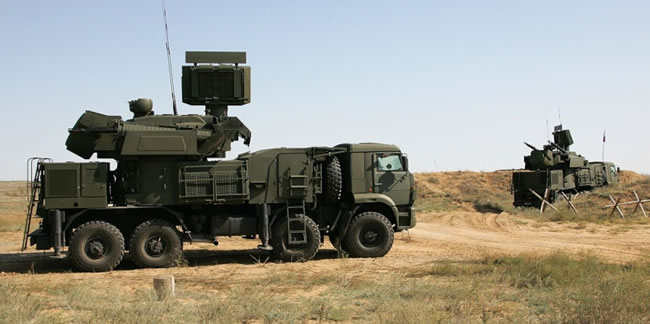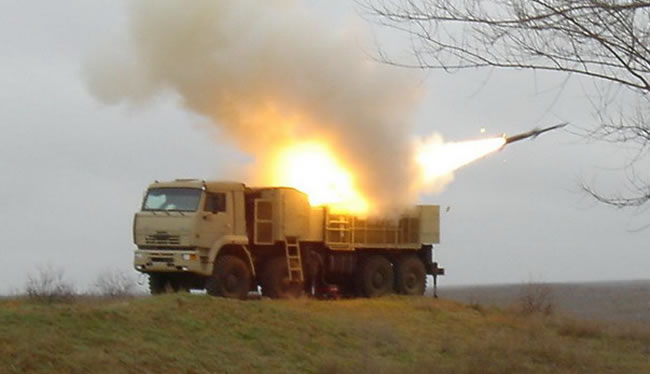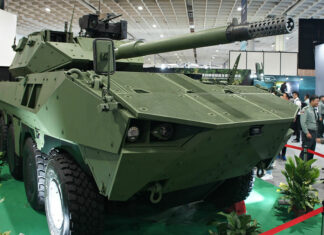
The Brazilian Ministry of Defense will commence negotiations for the procurement of Pantsir-S1 (SA-22) and Igla (SA-18) Very Short Range Air-Defense missiles (VSHORAD). The authorization followed a meeting between the Brazilian Republic president Dilma Rousseff, and Russian Prime Minister Dmitri Medvedev. Brazil plans to buy three Pantsir-S1 batteries (typically 15 units) and two batteries of short-range Igla missiles. Russia has formally presented the systems for the first time during the Brazilian presidential visit in Moscow in December 2012. First deliveries are expected to arrive in Brazil 18 months after the formal contract signature, expected within 3-4 months. Timely delivery of the systems is critical to provide Brazil with the necessary air-defense assets it required to place for the Rio 2016 Olympic games.
Pantsir-S1 systems produced by the Russian KBP Instrument Design Bureu are known to be in service with the military forces of Russia, Syria and the UAE, which was the launch customer for the system. Few systems have also shown up in Iran. Pantsir-S1 can be employed as a truck-mounted (mobile) short range air defense system or in stationary positions, where the air defense complex is removed from its truck. Each unit is deployed is self-sufficient, with an integral radar, passive electro-optical targeting system, twelve 57E6 short-range air defense missiles and twin-barrel 30mm 2A38M cannon. The missiles have a maximum range of 20 km while the guns can reach 4,000 meters and reach an altitude of 3,000 meters. The system can effectively engage fast and slow aircraft, helicopters, as well as unmanned aerial vehicles (UAV) and some types of guided weapons. Pantsir-S1 systems currently supplied to the UAE are employed with 8×8 MAN trucks, while the versions to be delivered to Brazil are likely to be mounted on locally built trucks.


















